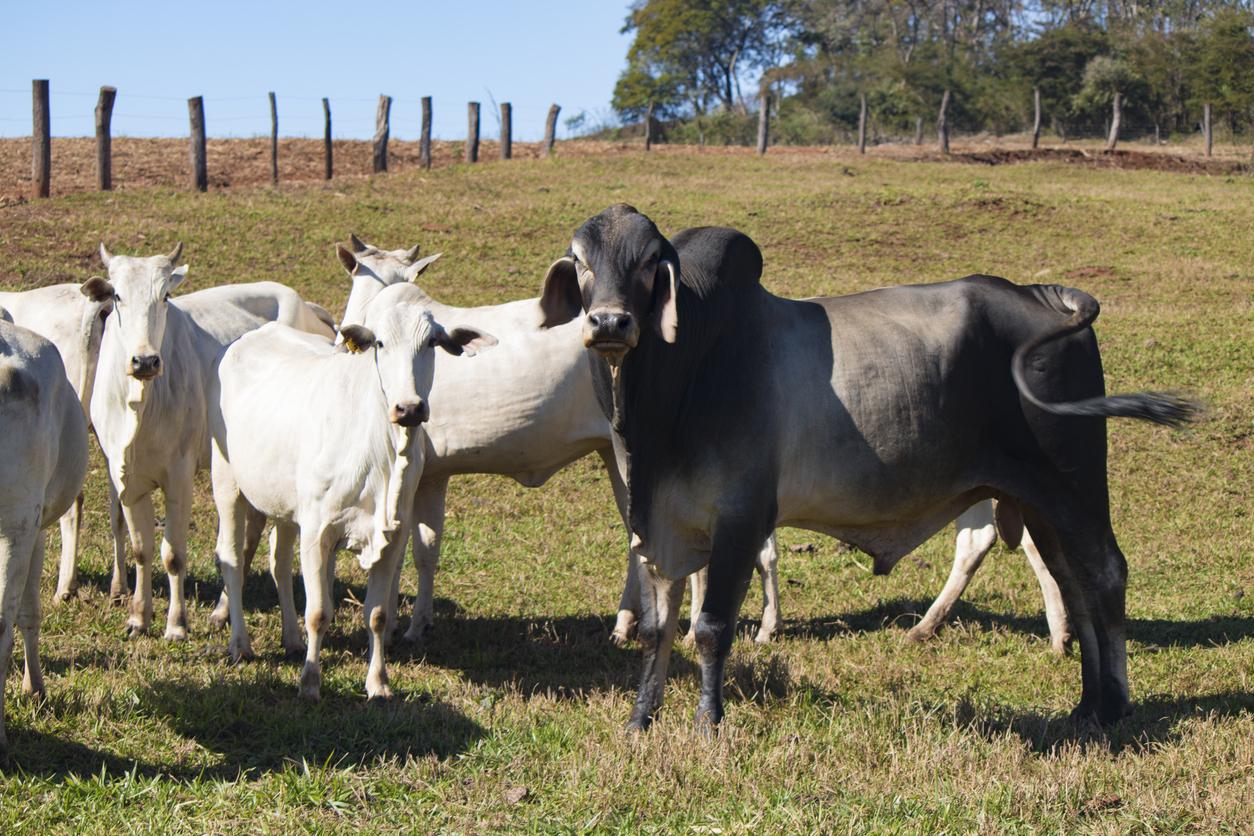What is a Goshala and How Does it Work?


A goshala is a protective shelter for cattle in India. Cows are considered sacred in the Hindu religion and so goshalas are a refuge for them. In a goshala, cattle are respected, venerated and treated with dignity. Goshala is a Sanskrit term which combines go or “cow” and shala or "shelter". Providing sanctuary, the goshala protects those animals which would have been mercilessly killed otherwise.
The first goshala in India was established in Rewari, in the north of the county, in the 1880s. In 1882, the first society for the protection of cows was established in Punjab. Hundreds of goshalas have been opened in the recent past.
Do you want to learn what is a goshala and how does it work? Stay with us at AnimalWised and read on!
How are goshalas supported?
From 2014 to 2016, the government of India has spent the equivalent of 87 million US dollars in cow shelters. The state of Rajasthan has created a Ministry of Cow Affairs as well. There is even a Rashtriya Gokul Mission which encourages the development of goshalas. Goshalas are supported by government funds, but also by charities.
To an extent, the cows themselves help support the goshalas, as their waste is useful as fertilizer and thus sold.
How can you help a goshala?
Now that you know what is a goshala, you probably want to help one with its mission. Luckily, there are many different ways you can help a goshala in India.
If you live near a goshala and practice Hinduism, you can participate in agnihotra, the milk offering. Goshalas offer you a chance to participate in this ritual to put animal waste to use and purify the environment, as in agnihotra cow dung is fed to the fire. Then, an offering of rice with ghee is placed on the fire. The smoke from this fire purifies the surrounding and works to repel mosquitoes. Agnihotra is a wonderful way to purify the air and repair the ozone layer.
The rice and ghee of agnihotra also combines with fresh dung to work as a fertilizer, while ash mixed with cow ghee or butter has antibacterial properties and can be used to heal wounds. As you can see, the different products from cows can be reused and sold, helping maintain the goshalas and the environment.
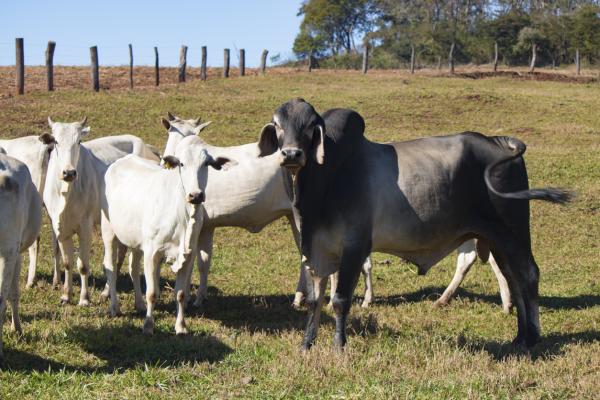
Feeding a cow in a goshala
If you know why are cows sacred in India you'll understand why feeding cows is considered a holy act in Hinduism. Cattle in goshalas are let out for grazing and fed meals of fresh and dry fodder, minerals and gram husk. You can either volunteer to feed the cows yourself or finance a meal.
What does energy have to do with cows?
If you can, a great way to help a goshala is to use biogas from cow waste for all your daily energy needs and give the pecuniary benefits to the shelter. This act will help you go green and also save the environment, not just the animals in the goshala. By using biogas as a renewable form of energy, you can meet two worthy goals through a single action.
What is seva or selfless service?
In Hinduism and related religions, the idea of offering selfless services without any reward for the benefit of others is called "seva". Doing seva is considered a devotional and extremely positive act. If you want to offer seva but don't know to what cause, consider the cows in goshalas.
Grooming and brushing cows offers material and spiritual benefits to society. Volunteers at goshalas can also do seva by cleaning the sheds. Hindus believe cow seva is one of the highest duties and holy actions, and therefore brushing cows is also considered a privilege for a goshala volunteer.
Other activities at goshalas include bathing the cows, cleaning the open enclosures, inspecting the cattle for injury or diseases and healing cows that are injured or in need of medical care. You can also help clean the premises and layer the roads so that cows are able to walk with ease and do not get injured.
What is daan?
Similarly to seva, daan is a concept from Hinduism and related religions that means being generous and giving away. If you want to practice daan, you can help a cow in distress and donate to a goshala.
The highest donation to a goshala is that of a cow; if you can save a cow from harm and sacrifice, your local goshala will appreciate it immensely. Money and check contributions are also considered, as maintenance and veterinary care will always be needed. You can also collect items to donate to the goshala such as blankets, hay, fodder, medical equipment, transport vehicles for cows and more.
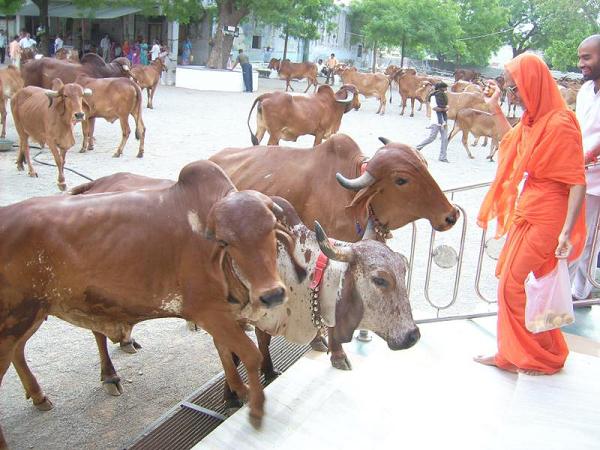
Why should cows be protected?
Even if you're not a Hindu and don't believe that cows are sacred, you can surely appreciate cows for their service to humans. Milk, yogurt, ghee, butter are all useful and medically beneficial for us. Cattle are a source of sustenance and protection for the agrarian farmer, and therefore they have economic value and utility for almost everyone.
However, we at AnimalWised believe that cows have a right to life and respect just by existing - even if they didn't produce anything, we would appreciate them as living beings all by themselves. Cows can feel and form relationships, and it would be deeply wrong and unfair to mistreat them.
Another unique way of promoting the aim of the goshala is to go vegetarian and avoid beef. Killing an animal for food is not needed, and vegetarianism is a healthier option which involves protecting the cow from exploitation. This will help protect all cows, not only those in goshalas, and will be a great way of earning punya or good karma.
Now that you know what is a goshala and how does it work, tell us all about your experience with goshalas in the comments section!
If you want to read similar articles to What is a Goshala and How Does it Work?, we recommend you visit our Basic care category.


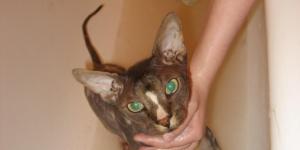

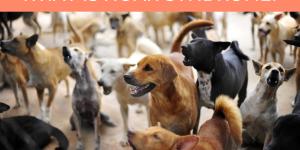

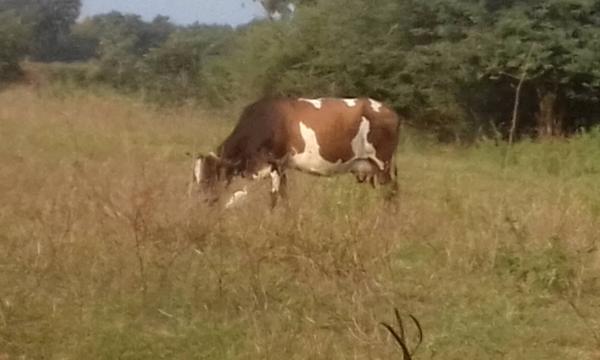 can we offer anytype of cows to goshala.....?can i offer below calf
can we offer anytype of cows to goshala.....?can i offer below calf


